Discover Your Roots
SIGN UPDiscover Your Roots
SIGN UPEvangeline is a female name of English origin, meaning "Messenger Of Good News." The name is derived from the Latin word "evangelium," which translates to "gospel," and is a combination of the Greek words "eu" for "good" and "angela" for "news." The name gained prominence through the epic poem "Evangeline, A Tale of Acadie" by Henry Wadsworth Longfellow, published in 1847. The poem follows the journey of a fictional Acadian girl named Evangeline Bellefontaine, portraying her unwavering search for her lost love, Gabriel Lajeunesse, during the expulsion of the Acadians. Evangeline's name reflects hope, faith, and resilience, embodying the symbolism of spreading good tidings and maintaining optimism in the face of adversity.
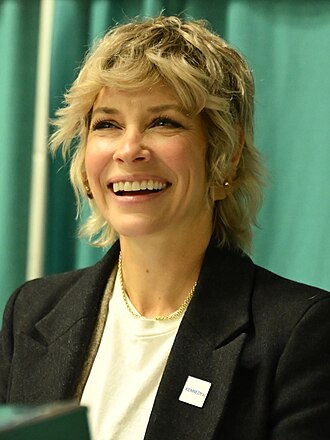
Nicole Evangeline Lilly, born in Canada on August 3, 1979, is a former actress and author known for her role as Kate Austen in the TV series Lost, which earned her multiple award nominations. She has also appeared in films such as The Hurt Locker, Real Steel, and The Hobbit series. Apart from her acting career, Lilly is the author of the children's book series The Squickerwonkers. Raised in British Columbia, she graduated from W. J. Mouat Secondary School and later studied international relations at the University of British Columbia. Lilly's acting career began after being discovered by a modeling agency and receiving roles in commercials, TV shows, and a gaming television channel. Her breakthrough came with the role of Kate Austen in Lost, which ran from 2004 to 2010, earning her critical acclaim and a Golden Globe nomination. In 2008, she appeared in The Hurt Locker and continued to take on roles in various films. Lilly has expressed her dedication to humanitarian causes and world development alongside her acting career.
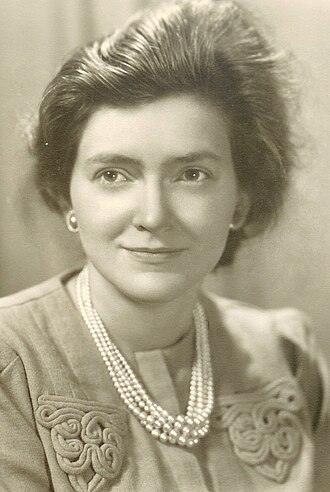
Evangeline Walton, born on November 24, 1907, and passed away on March 11, 1996, was an American writer known for her fantasy fiction. Her ability to humanize historical and mythological subjects with eloquence, humor, and compassion has garnered her popularity in North America and Europe. Born in Indianapolis, Indiana, Evangeline came from a Quaker family and was privately or self-taught at home due to chronic respiratory illnesses during her childhood. Her natural feminism, influenced by her parents' marital difficulties, is evident throughout her writings. Evangeline's passion for opera, particularly Richard Wagner's Der Ring des Nibelungen, was nurtured during her frequent travels to New York City, Chicago, and San Francisco with her mother. After the death of her grandmother, she and her mother moved to Tucson, Arizona. Despite facing health challenges, Evangeline continued to work on her best-known works, including the Mabinogion tetralogy and the Theseus trilogy. Her knack for writing fantasy involved putting flesh and blood on the bones of the original myth, adding interpretation without contradicting sources. Evangeline corresponded with the British novelist, essayist, and poet John Cowper Powys for many years, and some of her papers are archived at the University of Arizona in Tucson. She is best known for her Mabinogi retellings, with The Mabinogion Tetralogy published in 2002. Stevie
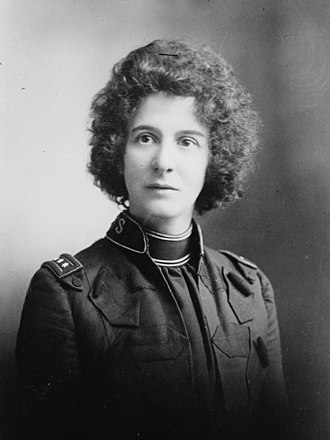
Evangeline Cory Booth, OF (1865 – 1950) was a British evangelist and the fourth General of The Salvation Army, becoming the first woman to hold the post. Born in South Hackney, London, she was the seventh of eight children to William Booth and Catherine Mumford, founders of The Salvation Army. Evangeline's dedication to the organization began at 15 when she sold The War Cry in the slums of east London. Her leadership skills were evident as she fearlessly faced opposition and riots, eventually being appointed as the Territorial Commander of the United States and Canada. During her tenure, she played a pivotal role in raising funds for Salvation Army relief work and supporting the American Expeditionary Force during World War I. Her influential role in The Salvation Army's leadership structure led to the election of the General by the High Council. As the fourth General, she continued her global travels, earning the nickname 'The Musician General' for her interest in the musical sections of The Salvation Army. Evangeline Booth's legacy is marked by her unwavering dedication to The Salvation Army's mission and her pioneering leadership as a woman in the organization's highest position.
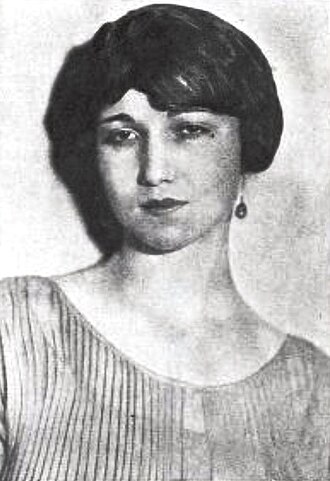
Evangeline Frances Russell (August 18, 1902 – February 22, 1966) was a renowned American actress celebrated for her performances in silent Westerns during the 1920s. Born in Manhattan to actor John Lowell Russell and screenwriter Lillian Case Russell, she inherited a passion for the entertainment industry. Russell's illustrious career was marked by her exceptional talent as an actress and her expertise as a horsewoman and race car driver. Renowned for her roles in films like "The Isle of Sunken Gold," "The Big Show," and "Lost in a Big City," she was known for her dedication to her craft, even going to extreme lengths such as toughening her feet for a role in "Hawk of the Hills." Despite her professional success, Russell faced personal challenges, including multiple marriages and financial hardships following the Great Depression. Her resilience shone through as she took on various jobs to support her family. Evangeline Russell's legacy continues to inspire and captivate audiences, leaving an indelible mark on the world of cinema.
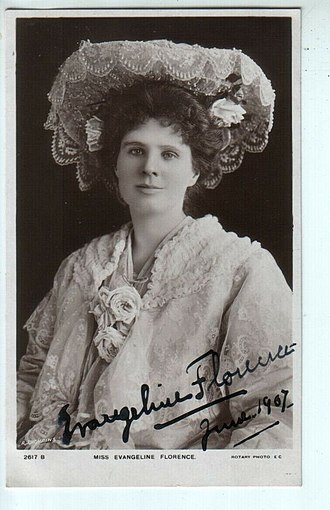
Evangeline Florence (12 December 1867 – 1 November 1928) was a celebrated American-born soprano known for her remarkable concert career in Great Britain. Born as Florence Angeline Houghton in Cambridge, Massachusetts, she received her vocal training in Boston and London. In 1892, she made her London concert debut, captivating audiences with her exceptional high notes. Florence's talent led her to perform at prestigious venues, including St James's Hall and the Crystal Palace Concerts. Renowned as a concert soprano, she garnered acclaim for her extraordinary vocal range, which surpassed that of the renowned Adelina Patti. In addition to her concert endeavors, Florence also ventured into teaching voice and recording several records. In 1894, she married Alexander Crerar, a Scottish commission merchant, and resided in Kensington, London, until her passing in 1928. Evangeline Florence Crerar's legacy continues to be celebrated, reflecting her significant contributions to the world of music.
All images displayed on this page are sourced from Wikipedia or Wikimedia Commons.We use these images under their respective Creative Commons or public domain licenses. Wherever applicable, author attributions and license information are provided. If you believe an image is used incorrectly or outside its license terms, please contact us so that we can review and correct the issue.